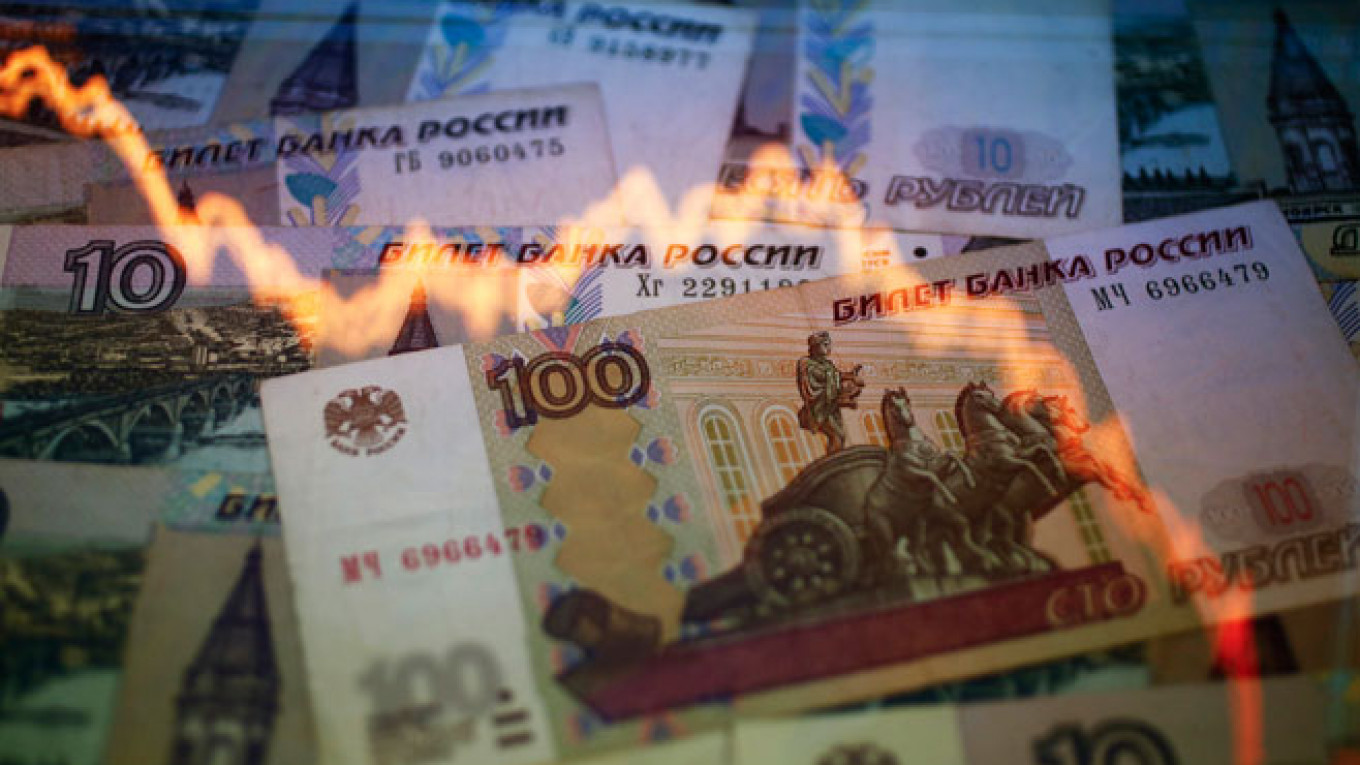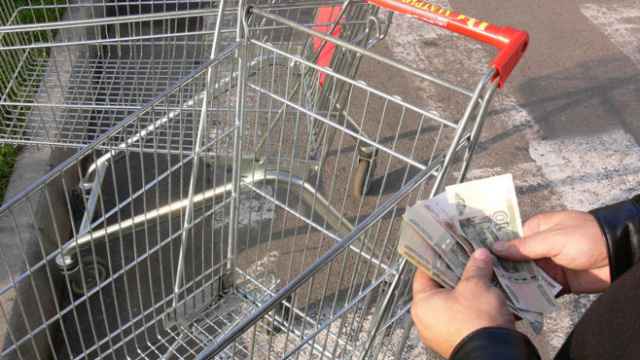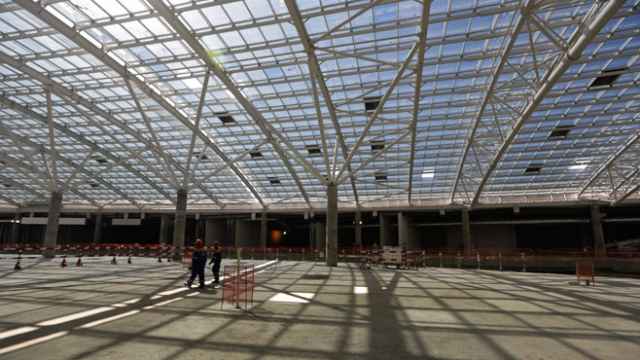Russia's surging inflation rate will remain high through spring of next year, propelled by the devaluation of the ruble currency and the steep cost of Moscow's bans on food imports from Western countries that sanctioned it over Ukraine, the Central Bank said in a report published Monday.
Inflation will then "slow significantly" toward the end of 2015 as Russia strengthens trade ties with other partners and import prices fall, the bank said, while the Russian state's drive to use fewer U.S. dollars and euros may ease the impact of a weak ruble.
Defying the Central Bank's target of 5 percent, year-on-year inflation hit a high of 8.3 percent in October, driven up by disruptions in supply chains caused by Russia's ban in August on imports of meat, poultry, fish, cheese, fruit, vegetables and dairy from the European Union, the United States, Australia, Canada and Norway, all of which have imposed sanctions on Russia over the Ukraine crisis.
The report, which laid out the Central Bank's monetary policy for the next three years, anticipates that both Western sanctions against Russia and Russia's food import bans will remain in place until the end of 2017.
The rapid tumble of the ruble, which has lost a third of its value so far this year, has also accelerated inflation by raising the price of other imports.
However, Russia's Industry and Trade Minister Denis Manturov said Monday during President Vladimir Putin's visit to Beijing that the dollar and euro's impact on inflation will ease as Russian companies turn away from hard currency for settling trade payments.
"Our companies quite pragmatically proceed with the assumption that it's better to settle accounts in local currencies, which hedges against dollar-euro exchange rate risks," news agency RIA Novosti quoted Manturov as saying.
Also speaking in Beijing, Putin said Monday that Russia and China plan on increasing the amount of trade settled in rubles and Chinese yuan, including trade in the all-important energy sector.
A Message from The Moscow Times:
Dear readers,
We are facing unprecedented challenges. Russia's Prosecutor General's Office has designated The Moscow Times as an "undesirable" organization, criminalizing our work and putting our staff at risk of prosecution. This follows our earlier unjust labeling as a "foreign agent."
These actions are direct attempts to silence independent journalism in Russia. The authorities claim our work "discredits the decisions of the Russian leadership." We see things differently: we strive to provide accurate, unbiased reporting on Russia.
We, the journalists of The Moscow Times, refuse to be silenced. But to continue our work, we need your help.
Your support, no matter how small, makes a world of difference. If you can, please support us monthly starting from just $2. It's quick to set up, and every contribution makes a significant impact.
By supporting The Moscow Times, you're defending open, independent journalism in the face of repression. Thank you for standing with us.
Remind me later.






